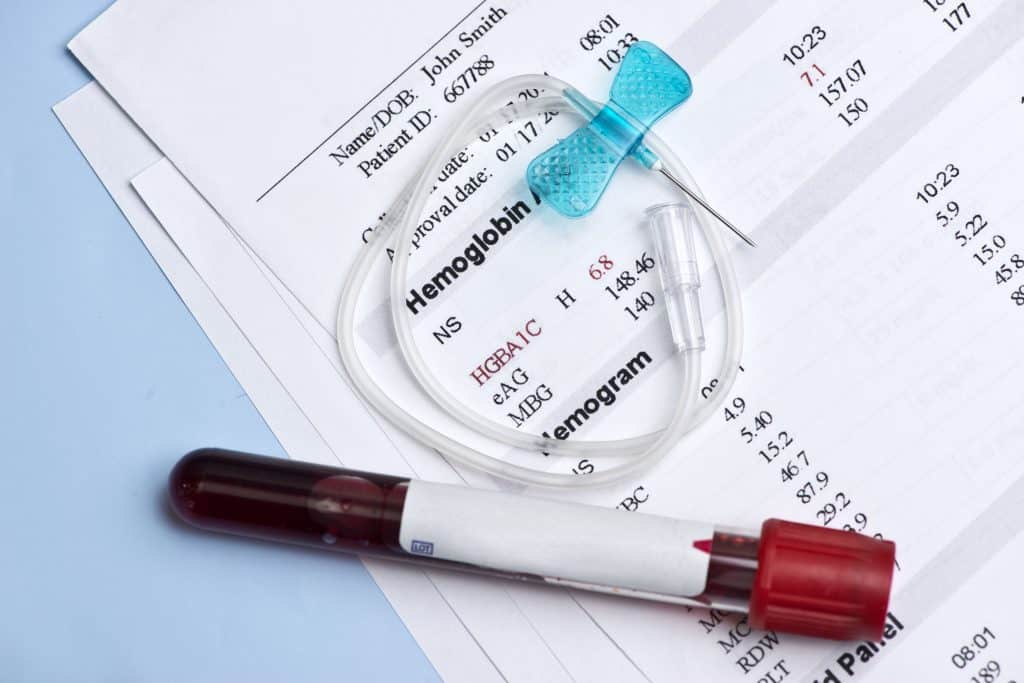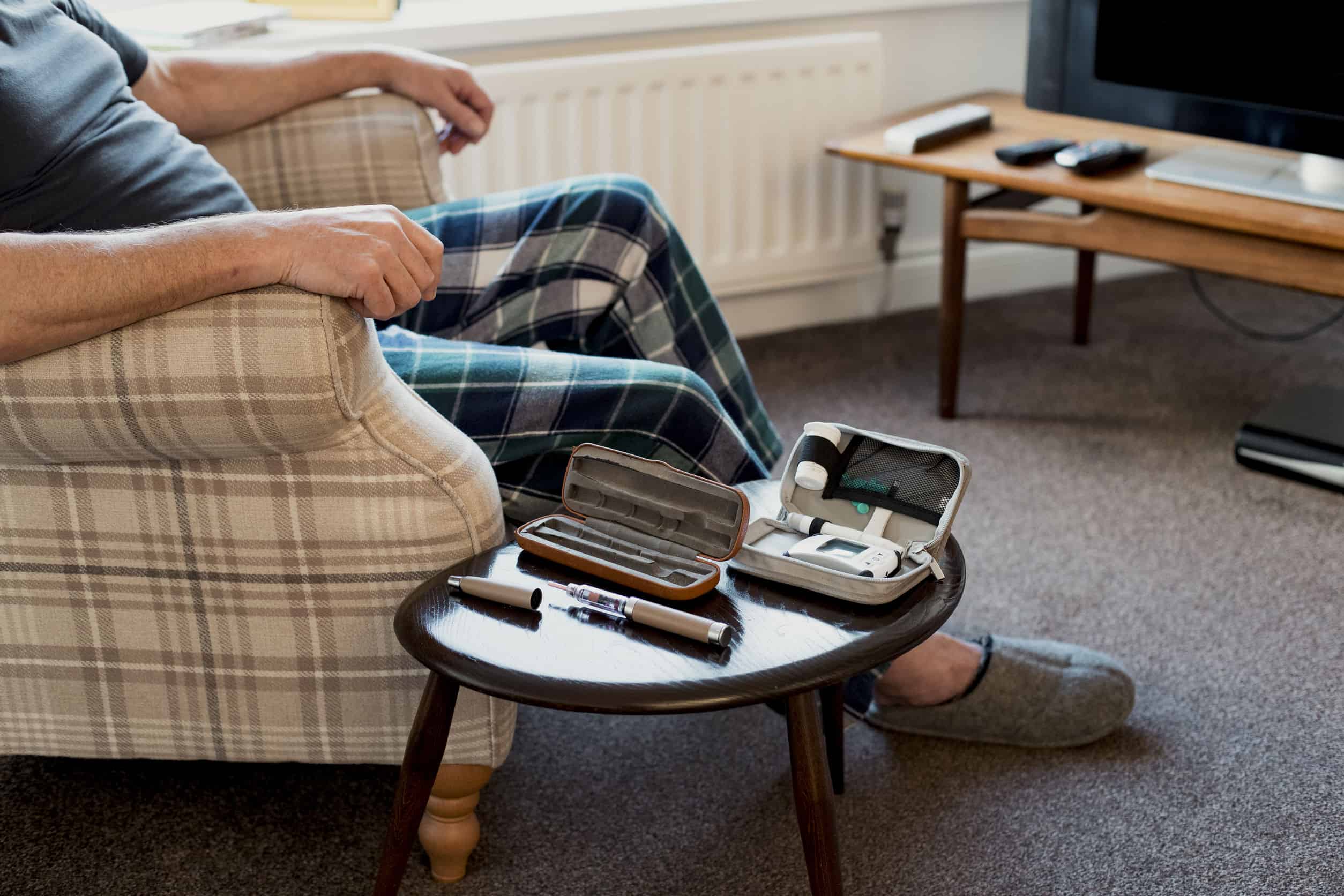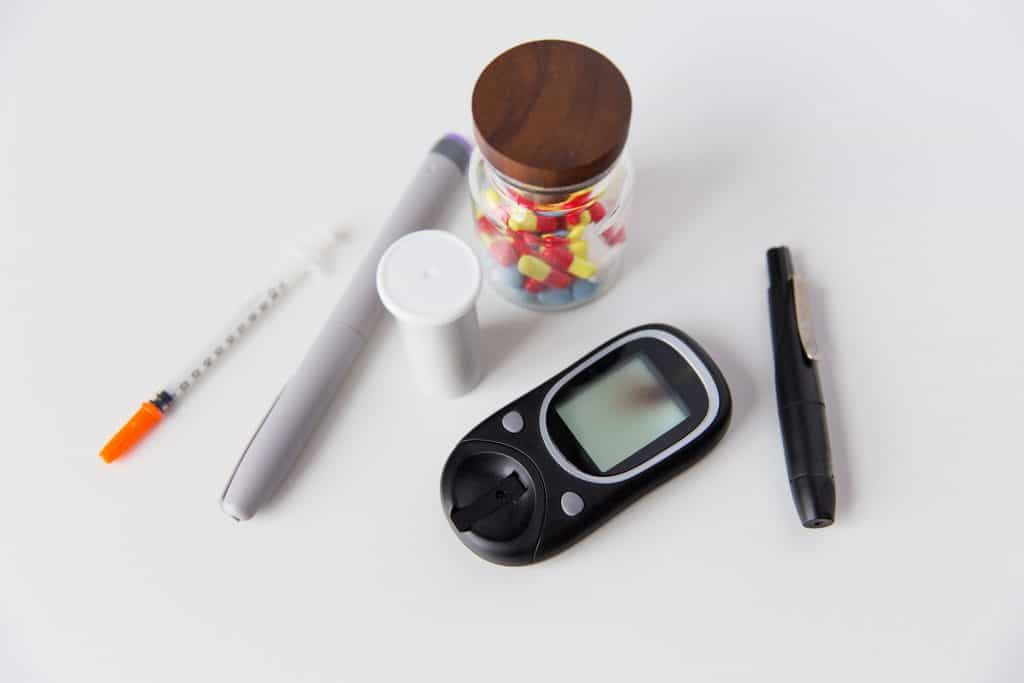What is Type 1.5 Diabetes – Information, Diagnosis, Symptoms, and Treatment
Posted by Prescription Hope - See Editorial Guidelines (Last Updated On: Mon Apr 24 2023)
Just about everyone has heard of both type 1 and type 2 diabetes. But what is type 1.5 diabetes? In this article, we’ll cover what precisely this form of diabetes is, who’s at risk for it, and treatment options. Before we get into too much detail though, here’s a quick answer. What is type 1.5 diabetes? Type 1.5 diabetes is essentially a hybrid of type 1 and type 2 diabetes. It is also called latent autoimmune disease in adults (LADA). Some researchers believe this form of diabetes is a subtype of type 1, while others believe it is in its own category. Those diagnosed with type 1.5 diabetes are typically over the age of 30.
What is Type 1.5 Diabetes?
 There has been some controversy surrounding type 1.5 diabetes, as it can get a little confusing. It is not clear if this form of diabetes is a subtype of type 1 or if it should fall between type 1 and 2 on the continuum.
Type 1.5 is similar to that of type 1, as it is an autoimmune illness. Meaning, the body begins to attack itself mistakenly. However, unlike with type 1, type 1.5 typically occurs later in life.
This condition also has similar to that of type 2 diabetes, which is why it can be defined as a hybrid. Typically, type 1.5 diabetes has a slow onset like type 2 but will need to be treated with insulin as the condition progresses.
There has been some controversy surrounding type 1.5 diabetes, as it can get a little confusing. It is not clear if this form of diabetes is a subtype of type 1 or if it should fall between type 1 and 2 on the continuum.
Type 1.5 is similar to that of type 1, as it is an autoimmune illness. Meaning, the body begins to attack itself mistakenly. However, unlike with type 1, type 1.5 typically occurs later in life.
This condition also has similar to that of type 2 diabetes, which is why it can be defined as a hybrid. Typically, type 1.5 diabetes has a slow onset like type 2 but will need to be treated with insulin as the condition progresses.
Causes
The cause of type 1.5 diabetes is not yet known. Again, this is an autoimmune condition. This means that lifestyle factors are not believed to be the cause. We know that with type 1.5, the body attacks pancreatic beta cells, which is similar to that with type 1 diabetes. A family history of autoimmune diseases may be a potential cause for this condition. Further research is still being done to determine what causes the body to react this way. Understanding the differences between type 1 and type 2 diabetes will give you a better understanding of type 1.5.What Makes it Different Than the Other Two Types?
There are a few aspects that make type 1.5 diabetes different than other the other types. The first, being the age difference. Type 1.5 is usually diagnosed after the age of 30. This would be uncommon when compared to that of type 1. It is extremely rare for a person over the age of 30 to be diagnosed with type 1 diabetes. Type 2 diabetes is more commonly diagnosed past the age of 30, but there are differences here too. Type 1.5, as we discussed above, is autoimmune. Type 2 is commonly caused by lifestyle factors such as diet and low physical activity. Typically, a person with type 2 will be sedentary and overweight. This may not be the case in someone diagnosed with type 1.5 diabetes. The treatments between the different types of diabetes are all different as well. We will get into this in just a bit.Who’s at Risk?
 If you are older than 30 and have a history of autoimmune disease in your family, then you may be at a higher risk for developing type 1.5 diabetes. Certain environmental factors or stress could also put you at a higher risk. Again, the exact cause is not fully known, and much research is still being conducted.
Talk to your doctor about your family history and about your blood work to determine if you have a risk of developing any medical condition.
If you are older than 30 and have a history of autoimmune disease in your family, then you may be at a higher risk for developing type 1.5 diabetes. Certain environmental factors or stress could also put you at a higher risk. Again, the exact cause is not fully known, and much research is still being conducted.
Talk to your doctor about your family history and about your blood work to determine if you have a risk of developing any medical condition.
Type 1.5 Diabetes Symptoms
The symptoms for type 1.5 diabetes may not be easily detected at first. The symptoms will be similar to that of type 2 diabetes, which includes:- Thirst
- Dehydration
- Frequent urination
- Unexplained or sudden weight loss
- Blurry vision
- Weakness or fatigue
- Dry or itchy skin
- Slow-healing wounds or frequent infections
- Tingling of the nerves around hands or feet
Type 1.5 Diabetes Treatment
 Type 1.5 diabetes is initially treated with oral medications that are used to treat type 2 diabetes. There are two reasons for this.
First, with type 1.5, the body is still producing some insulin, but not enough to keep blood sugars within the normal range. Oral medications can help the pancreas with the production of insulin.
Secondly, due to the similarities, this form of diabetes has with that of type 2, it is often misdiagnosed as type 2 diabetes. Therefore, prescribing oral medication seems like the necessary step, and will typically treat type 1.5 diabetes but only for a time.
Oral medications for diabetes may be able to treat type 1.5 for up to five years. However, the body’s ability to produce insulin will gradually slow down. The individual will need to be placed on insulin therapy once the oral medications are unable to treat the condition.
If you are on diabetes oral medications and are not able to gain control of your diabetes, then talk to your doctor. You may need to be prescribed insulin to receive the proper treatment that you need.
Unfortunately, there has not be a proper treatment intervention established to treat this form of diabetes. Therefore, it has been difficult for doctors to be proactive in this situation. They are often reactively prescribing medication, which gives the condition the upper hand in some instances.
If you have been diagnosed with type 2 diabetes but are unable to control your blood sugar with the prescribed medication, talk to your doctor about being tested for specific antibodies. Individuals with type 1.5 diabetes may test positive for a certain antibody that those with type 1 diabetes have. This would help in providing you with the right treatment.
Type 1.5 diabetes is initially treated with oral medications that are used to treat type 2 diabetes. There are two reasons for this.
First, with type 1.5, the body is still producing some insulin, but not enough to keep blood sugars within the normal range. Oral medications can help the pancreas with the production of insulin.
Secondly, due to the similarities, this form of diabetes has with that of type 2, it is often misdiagnosed as type 2 diabetes. Therefore, prescribing oral medication seems like the necessary step, and will typically treat type 1.5 diabetes but only for a time.
Oral medications for diabetes may be able to treat type 1.5 for up to five years. However, the body’s ability to produce insulin will gradually slow down. The individual will need to be placed on insulin therapy once the oral medications are unable to treat the condition.
If you are on diabetes oral medications and are not able to gain control of your diabetes, then talk to your doctor. You may need to be prescribed insulin to receive the proper treatment that you need.
Unfortunately, there has not be a proper treatment intervention established to treat this form of diabetes. Therefore, it has been difficult for doctors to be proactive in this situation. They are often reactively prescribing medication, which gives the condition the upper hand in some instances.
If you have been diagnosed with type 2 diabetes but are unable to control your blood sugar with the prescribed medication, talk to your doctor about being tested for specific antibodies. Individuals with type 1.5 diabetes may test positive for a certain antibody that those with type 1 diabetes have. This would help in providing you with the right treatment.

